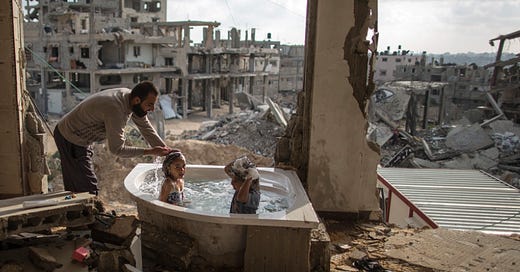My father's father died a few years ago, of Alzheimer's.
His strategy—or perhaps just instinct—for sky-walking the canyon of memory loss that kept getting wider and wider was just to assume every person at the door was a cherished family member or a lifelong friend.
Because it might have been; or it might have been some kid hopping out of an Amazon van to toss something at the porch.
He preferred to err on the side of assuming a total stranger was his best friend or son, than to see a best friend or son as his total stranger.
Indeed, his mind was crumbling into white sand carried away in a slow, terrible, almost unbearable outgoing tide, but the sun peeked out at the end, and his heart blossomed, right there on the desolate beach.
Seabirds came and sang in circles around his head, so to speak.
Memory loss, loss of self-world coherence, loss of life-story, loss of narratival thread: Though very, very painful for him and my grandmother, and also all those who loved him—which means those who remembered things about him that he himself didn't—these things didn't, however, entail the loss of his personhood.
On the contrary, only a truly human person could have loved a complete stranger as a brother or a sister, or a daughter or a son—that is to say, as what they really were.
And so here is a poem which touches the mystery of non-memory, which I wrote five years ago about my little boy, but with which I now wish to reach across the chasm of imposed historical memories and recognize and say aloud just one way, out of the infinitely many, in which the children of the Gazan man in the photograph are exactly as beautiful as they are (or were).





